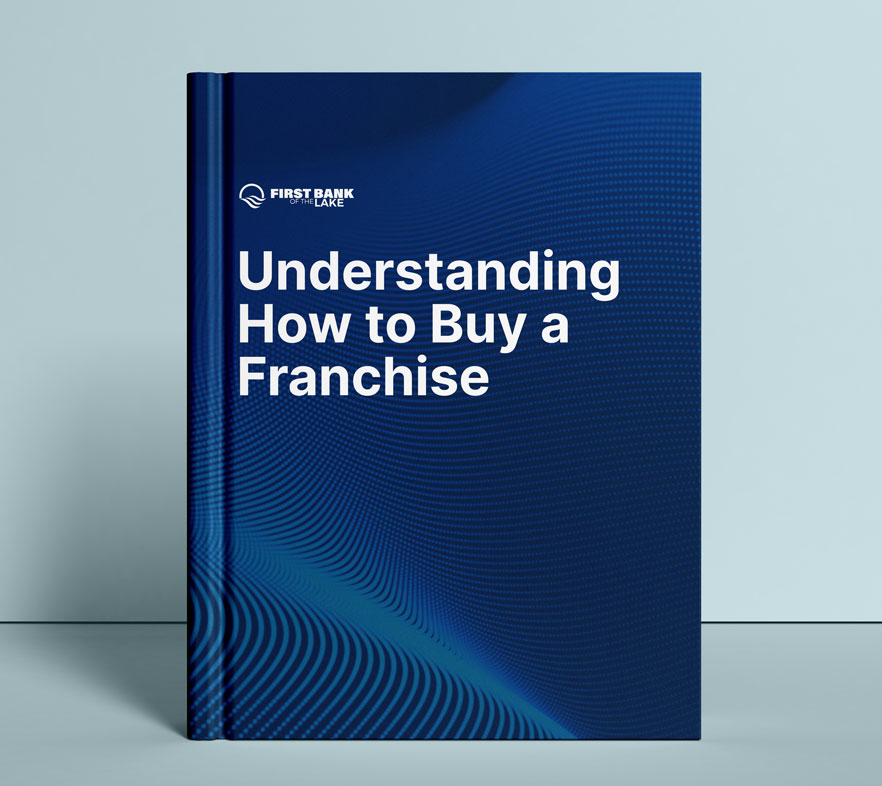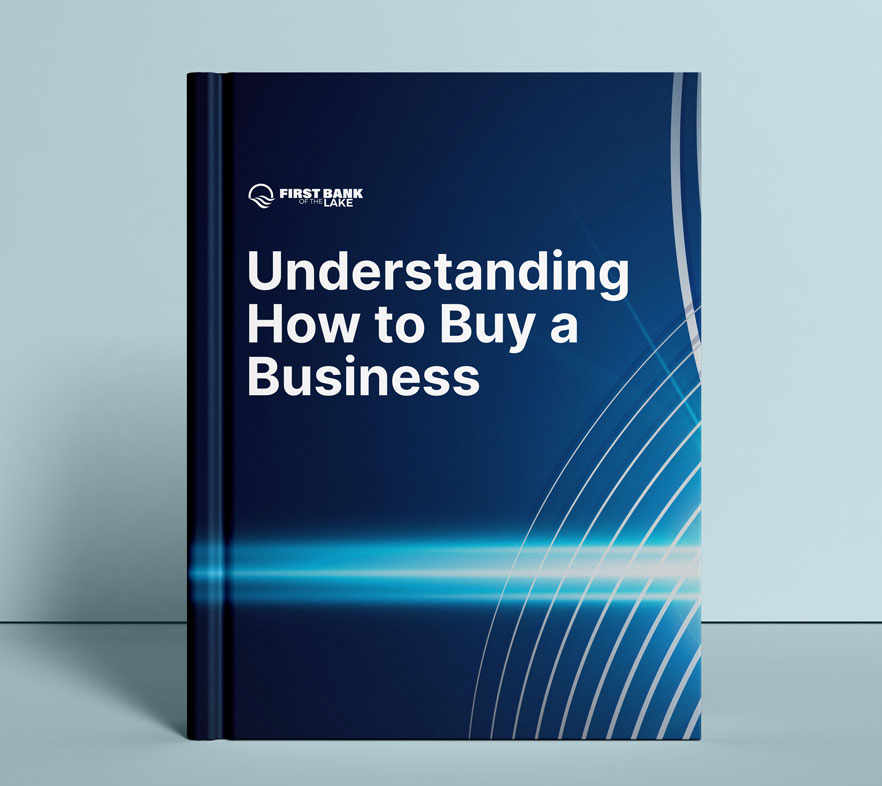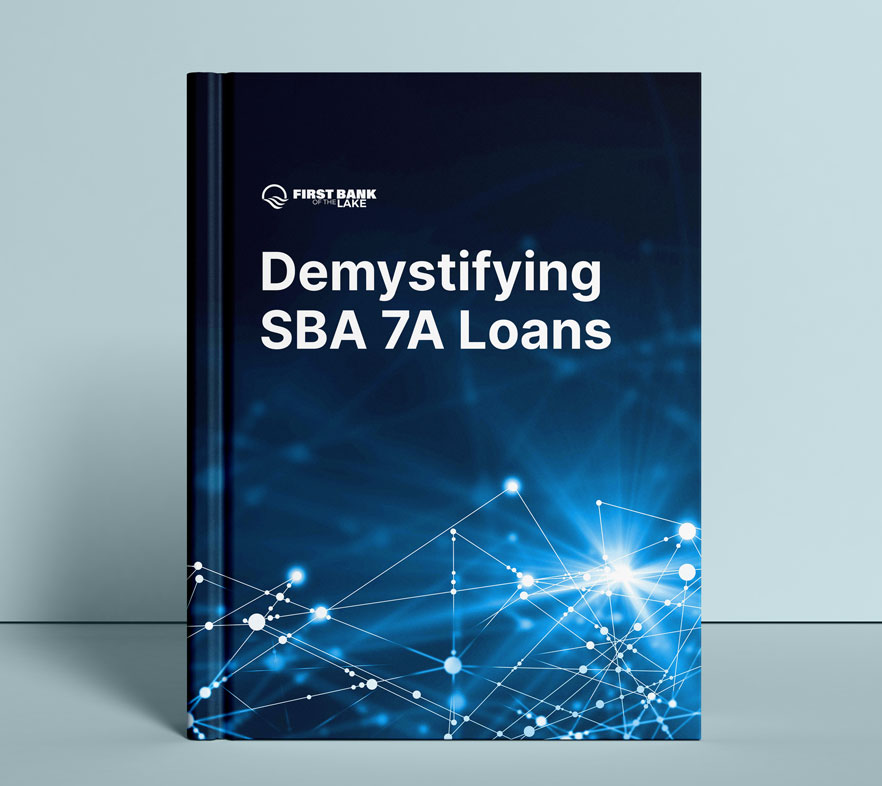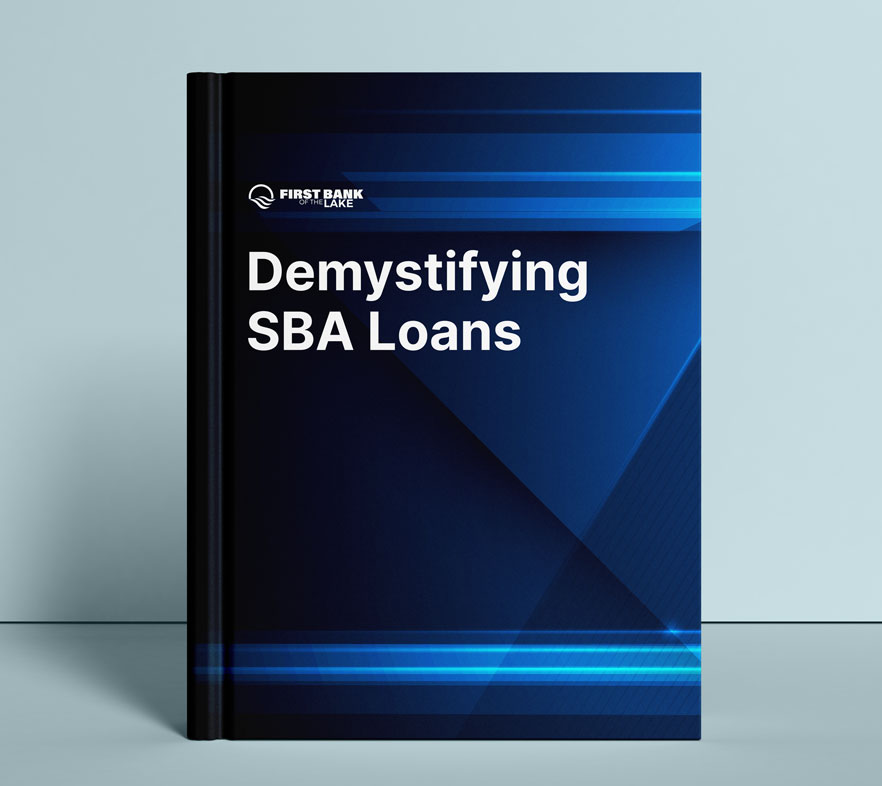Use Our Business Loan Calculator to Learn How to Get a Business Loan
Home » Calculators »
Estimate Your Loan Payments With One of the Best Business Lenders
A business loan calculator is an essential tool for entrepreneurs and small business owners. Using a dedicated business loan calculator simplifies financial planning by estimating monthly payments and interest costs, helping businesses make informed decisions. Popular business loan types include franchise loans, working capital loans, loans to buy a business and equipment loans.
Please Enter Your Business Loan Details
Disclaimer: Information and interactive calculators are made available to you only as self-help tools for your independent use and are not intended to provide loan advice. We cannot and do not guarantee their applicability or accuracy in regards to your circumstances. All examples are hypothetical and are for illustrative purposes. We encourage you to seek personalized advice from qualified professionals regarding all financial issues.
Ranked a Top 3 SBA franchise lender^
+$600 million franchise loans funded
+$2 billion in SBA loans since 2020
+2,000 SBA loans funded since 2020
See if You Pre-Qualify for an SBA Loan in 3 Minutes
Get the capital you need to fund your business

Fill in your info:

Using the Business Loan Calculator
How to Enter Data in for the Business Loan Calculator
- Amount of Loan: Enter in loan amount from $50,000 to $5 million. It is determined by business needs and loan qualifications – and it can be used for working capital, equipment purchase or acquisitions.
- Interest: Enter the estimated business loan interest rate, which is tied to Prime Rate.
- Loan Term: Business loan terms vary by purpose, but generally range up to 10 years for equipment/working capital and up to 25 years for real estate.
How to Use the Business Loan Calculator Results
- Monthly Payment: The monthly payment in an SBA 7(a) loan calculator output refers to the estimated amount a borrower pays each month. It includes principal and interest, and sometimes fees.
- Interest Paid: Interest paid in a loan calculator output represents the estimated cost of borrowing over the loan term. It reflects the estimated amount charged by the lender for using their funds.
Limitations and Disclaimers
Loan calculators are offered as tools to estimate loan costs based on user inputs like loan amount, interest rate, and term, but these results are not guaranteed and should only be considered a guideline or estimate. Borrowers should use them as a guide and consult financial advisors for tailored advice. At First Bank of the Lake, the information and interactive calculators we provided are intended solely as self-help tools for your independent use. All examples are hypothetical and meant for illustrative purposes only. To ensure clarity and informed decision-making, we encourage users to understand that calculator results are non-binding, based on general assumptions, and subject to change. We strongly recommend consulting directly with one of our loan officers or qualified professionals for personalized guidance tailored to your financial needs.
Contents
- Business Loans Overview
- What Types of Business Loans Are There?
- Business Loan Qualifications
- How to Get a Business Loan
- Business Loan Interest Rates
- Best Business Lenders – How to Choose One
- SBA Business Loans
- SBA 7(a) Loans
- SBA 504 Loans
- Business Loan Experience
- Business Loan FAQ
- Getting Started

Business Loans Overview
Understanding Business Loans
For many entrepreneurs, a business loan is key for starting or growing their business, but finding the right loan for their business needs is often harder than it sounds. According to the 2025 Report on Employer Firms, nearly 59% of small businesses tried to get a business loan in the last year, yet only 41% received the amount requested. This funding gap drives many entrepreneurs to research who the best business lenders are and what loan programs are available.
Fortunately, small business lending is on the rise, offering competitive rates and better terms. The U.S. Small Business Administration (SBA) backed a record $56 billion in loans in fiscal year 2024. This was the SBA’s highest volume in over 15 years, supporting more than 100,000 businesses. The SBA’s historic commitment to lending to small business growth, includes a renewed focus on underserved communities, where demand for smaller loans is on the rise. 81% of SBA 7(a) loans were for $500,000 or less, showing most loans are going to smaller businesses. Waived guarantee fees and the personalized approach of community banks are drawing more small businesses to these smaller SBA loans. With low interest rates and extended repayment terms, SBA financing through banks remains a compelling option for entrepreneurs.
Getting a business loan can be challenging without preparation. The good news though, is that 64% of SBA loan applications are approved. This reflects the SBA program’s broad eligibility, but approval rates vary across lenders. Community banks, for example, only fully approve about 54% of their small business loan applicants. The FDIC’s 2024 Small Business Lending Survey sheds light on how banks evaluate loan applications, use financial technology, and position themselves in a competitive market. These findings provide insight into what lenders are prioritizing, helping you to better prepare and craft a stronger loan application.
We will explain how to get a small business loan from start to finish. You’ll learn about different business funding options, including government backed business loan programs like SBA 7(a) and 504 loans. With the right information and preparation, you can get the small-business loan and working capital you need to expand your company or buy another business.
What Is a Business Loan?
A business loan is simply a loan intended for business purposes. Like any loan, it creates a debt that must be repaid with interest over time. In other words, a lender provides a company with funds up front, and the business agrees to pay back the principal plus interest on a set schedule. Business loans are offered by a variety of small business lending companies, including traditional banks, credit unions and online business credit lenders, to name a few. The borrowed money can be used for most legitimate business expenses. All major terms and conditions – the interest rate, repayment period, fees and any collateral requirements – are clearly outlined in the formal loan agreements. In short, a business loan gives your company access to capital now in exchange for the promise of repayment in the future.
How Do Business Loans Work?
A business loan works by providing capital upfront, which you then repay over time according to a set repayment schedule. The process of how to get a business loan typically starts with submitting documentation about your business’s finances and purpose for the loan. From there, the lender will review your application and determine your eligibility. Once approved, you’ll sign the loan documents and the lender will disburse the funds. With term loans, you receive a lump sum upfront and repay it through fixed payments that include both principal and interest over a set period of time. Whereas, with a line of credit, the lender sets a credit limit and you can borrow from that amount as needed, paying interest only on the amount you actually use. Throughout the repayment period, it’s important to make payments on time. If you pay off the loan early, some lenders may charge a prepayment fee. Meanwhile, late or missed payments can lead to penalties or harm your credit. Ultimately, a business loan works as a tool to inject funds into your business now, with the agreement that you will pay the lender back later under the agreed terms.
Uses of Business Loans
The best business lenders help businesses access small business financing for most legitimate business purposes. For example, you might use a loan to purchase inventory, buy new equipment or vehicles, hire staff or lease a bigger space. Many entrepreneurs seek an SBA loan to buy a business or launch a new venture. Other typical uses include refinancing old business debt, funding a marketing campaign, growth initiatives, or simply boosting your company’s working capital (the day-to-day operating cash flow). When you apply for a small business loan, lenders will ask you how you plan to use the funds, and the money generally must be spent on business needs (not personal expenses).
Key Requirements
Understanding how to get a business loan starts with knowing what lenders require. A business generally needs to demonstrate it can repay the loan. Lenders and banks will evaluate your company’s financial statements, credit history, revenue and sometimes the owner’s personal credit. Having a solid business plan and a good credit score improves your chances of qualifying for low interest business loans. Startups or businesses with limited credit may need to provide collateral or a personal guarantee to reassure the lender. Every lender and loan program has its own eligibility criteria, so it’s important to understand the requirements before you apply for a small business loan. Also remember that borrowing responsibly is vital – missing payments can hurt your business credit and even put personal assets at risk if you’ve pledged collateral. By knowing the basics of how business loans work, you can choose the right type of financing and borrow with confidence.
What Types of Business Loans Are There?
There are many loans available, tailored to different needs. Understanding the various types of business loans can help you choose the right financing option for your specific situation. Some of the most common include:
- Term loans: This is a traditional loan from a bank or lender that provides a lump sum you repay over a fixed term (for example, 5 years). Term loans can be short-term (a year or less) or long-term (up to 10+ years), and are often used for major investments or business expansion.
- SBA business loans: These are government backed business loans offered through the U.S. Small Business Administration’s programs. The most common is the SBA 7(a) loan, which can fund a wide range of purposes (working capital, equipment, real estate, or refinancing business debt). The SBA 7(a) loan program for lenders provides comprehensive guidelines and application procedures. The SBA 504 loan is specifically for major fixed assets like purchasing real estate or large equipment. For more details about the program structure and eligibility requirements, visit the Certified Development Company (CDC) 504 loan program.
- Business lines of credit: A revolving credit account lets you borrow up to a set limit and only pay interest on the money you use. Lines of credit are flexible and great for managing cash flow or unexpected expenses.
- Equipment financing: These loans or leases are used to purchase equipment or vehicles for your business. The equipment itself often serves as collateral and these loans help spread out the cost of big purchases over time.
- Invoice financing (factoring): This is a short-term financing option where you sell your unpaid invoices to a lender for immediate cash. It’s often used to improve cash flow, though it can be more expensive in the long run and is not common.
There are also specialty business loans designed for specific purposes or borrower groups. Business expansion loans help fund growth projects, working capital cover everyday operating expenses, and there are dedicated small business financing programs for veteran-owned, minority-owned or rural businesses. Additionally, the State Small Business Credit Initiative (SSBCI) provides nearly $10 billion in funding through state and local programs, offering various capital options including loan guarantees, equity investments, and technical assistance to help businesses access financing.

Business Loan Qualifications
Qualifying for a business loan is easier when you and your business are well-prepared. Here are some steps to improve your chances of approval and show lenders you’re a good candidate:
- Build strong credit: Lenders look at both your business and personal credit scores. Check your credit reports and correct any errors. Paying down existing debts can lower your debt-to-income ratio and make you less risky to lenders.
- Prepare your financial documents: Organize up-to-date financial statements (profit and loss statements, balance sheets), tax returns, bank statements and revenue projections. A well-prepared loan application with complete documentation demonstrates professionalism.
- Write a solid business plan: A clear, realistic business plan shows how you’ll use the loan funds and how your company will generate enough income to repay. Lenders want to see that you have a road map for success. For entrepreneurs just starting out, comprehensive business startup guidance can help you understand the fundamentals of launching and funding a new venture.
- Offer collateral or a guarantee if required: Backing your loan with collateral, like equipment or real estate, or signing a personal guarantee can give lenders extra confidence. It shows you’re committed and provides a way for the lender to recover funds if you default.
- Choose the right lender and loan product: Different lenders have different risk requirements. Research banks, credit unions and online business credit lenders to find one that suits your business profile and loan size. Government business loans like SBA loans often have more flexible terms for newer businesses, whereas traditional banks usually require a longer operating history. For more information on government funding options and starting a business, entrepreneurs can use resources that outline various funding sources, special programs for minority and veteran-owned businesses and step-by-step startup guidance.

How to Get a Business Loan
Learning how to get a business loan involves several key steps from start to finish. Here’s a high-level roadmap on how to get a business loan successfully:
- Assess your needs: Start by determining how much funding you need and what you will use it for. Lenders will ask about the purpose of the loan. Having a clear goal like buying equipment and obtaining working capital will help you choose the right loan product.
- Research your options: Explore different lenders and small business funding programs. Compare business loan interest rates, loan fees, repayment terms and the lender’s reputation. This will help you identify the best fit for your business.
- Check the requirements and eligibility: Review the specific requirements for your chosen loan option. Make sure you meet the minimum credit score, time in business, revenue and any other criteria. If something is lacking, you might consider a smaller loan or finding a co-signer.
- Gather your documents: Prepare all the documentation you’ll need for the application. This typically includes financial statements, tax returns, bank statements, legal business documents and a business plan. Being organized here speeds up the process.
- Submit the application: Learning how to apply for a small business loan starts with filling out the lender’s application and submitting it along with your supporting documents. Double-check that every item required is complete when submitting your loan application. An incomplete SBA business loan application can delay approval and closing.
- Underwriting and approval: Once submitted, the lender’s underwriting team will review your application. They may contact you with questions or requests for additional info. If you meet the criteria, you’ll receive approval or sometimes a conditional approval with certain conditions to meet. At this stage, you’ll also get the final loan offer detailing the interest rate, terms and any fees.
- Closing and funding: Finally, you’ll sign the loan agreements and any other closing documents. If collateral is involved, the lender also will secure its lien. After closing, the lender disburses the funds to your account, often within a few days. You can then use the money for your business needs, and your repayment schedule will begin as agreed, typically with monthly payments over several years.
Following these steps on how to get a business loan will help ensure you find the right financing and move through the application process as smoothly as possible. Remember to keep copies of all loan documents and stay in contact with your lender during the process.
Business Loan Interest Rates
Business loan interest rates can vary greatly – from single-digit annual percentages on bank loans to much higher rates from riskier business lending companies. The best business lenders determine the rate for a particular loan based on several factors:
- Market benchmark rates: Most lenders tie their rates to a benchmark like the Prime Rate or the federal funds rate, which move based on Federal Reserve policy. When those baseline rates rise, business loan rates tend to increase as well. Conversely, in a low-rate environment, banks can offer lower cost loans.
- Credit risk of the borrower: Your business’s financial health and creditworthiness play a major role. If you have a high credit score, strong revenues and healthy cash flow, you pose less risk and will qualify for lower rates. In contrast, a borrower seen as higher risk with a low credit score will be charged a higher interest rate to compensate the lender for the risk.
- Loan terms and amount: The length of the loan affects the rate. Generally, short-term loans might have higher rates or extra fees because they are paid back quickly, while long-term loans carry interest over a longer period and may have slightly different pricing.
- Collateral and guarantees: Collateral secured loans usually come with lower interest rates than unsecured loans. Having collateral or a personal guarantee reduces the lender’s risk, and they often reward the lower risk with a better rate. For example, an equipment loan secured by the machinery might be cheaper than an unsecured line of credit.
- Loan type and lender competition: Rates also depend on the type of loan and the lender’s pricing strategy. Low interest business loans like SBA 7(a) loans often have caps on interest rates. Traditional banks may offer lower rates but stricter qualifications. In competitive markets, lenders might lower rates to attract borrowers.
Each lender has an individual formula for setting rates that generally combine the above factors to arrive at a fair rate when providing funding for businesses. It’s always a good idea to shop around and compare business loan rates from multiple providers so you can secure the lowest rate you qualify for.

Best Business Lenders – How to Choose One
For example, if you’re seeking a small business SBA loan, working with an SBA Preferred Lender (like First Bank of the Lake) can streamline the process. Preferred Lenders have authority to approve SBA loans in-house, without needing to send every file to the SBA for review, cutting down approval times. Partnering with an SBA Preferred Lender often simplifies the process of how to get a small business loan, as these lenders are well-versed in SBA guidelines and can expedite the approval process. When shopping for a small business SBA loan, prioritize lenders with SBA Preferred status or extensive SBA small business loans experience, who know the process and requirements well.
Many business owners start by looking at banks or credit unions, often searching online for business lenders. Local community banks can be excellent, because they understand the local market and often provide personalized guidance. Community banks also tend to have higher small business lending approval and satisfaction rates than either big banks or online lenders. Online and alternative best business lenders are another option; they may offer quicker, more flexible financing, but usually at higher business loan interest rates with tougher terms.
To choose the right lender, compare several options on key factors: interest rates, loan fees, repayment terms and the lender’s reputation. Read reviews or ask for referrals where possible. A recent Federal Reserve survey found that borrowers’ satisfaction was much higher with small banks than with online lenders, largely due to differences in rates and terms. Be especially cautious of predatory lending practices targeting small businesses that exploit legal loopholes and charge extremely high rates. Ultimately, the best business lenders are transparent and treat you like a partner. They are willing to answer questions and support your business’ growth. Take time to find a lender you trust, because a good banking relationship can benefit your business for years to come.
SBA Business Loans
What is the SBA?
The Small Business Administration (SBA) is a U.S. government agency that supports small businesses, primarily by backing a portion of loans made by approved lenders rather than lending directly. The official SBA website provides comprehensive resources including business planning tools, funding guidance, and free counseling services to help entrepreneurs at every stage of their business journey.
What is an SBA Business Loan?
SBA small business loans are loans that the SBA guarantees a part of the loan amount. You apply for a small business loan through an SBA-approved lender, and the SBA’s backing reduces the lender’s risk of loss. This arrangement often allows for more favorable terms for the borrower like longer repayment periods or lower down payments than a traditional business loan. The SBA has several loan programs with the most common being the SBA 7(a) loan program for general small business needs and the SBA 504 loans for major fixed assets like commercial real estate or large equipment. Our resources for business owners include an SBA loan calculator and a 35 page free SBA loan e-pub.
We will explain how to get a small business loan from start to finish. You’ll learn about different business funding options, including government backed business loan programs like SBA 7(a) and 504 loans. With the right information and preparation, you can get the small-business loan and working capital you need to expand your company or buy another business.
How SBA Business Loans Work
Government business loans work by having the SBA guarantee a portion of the loan that a bank or approved lender provides. When exploring how to get a business loan through the SBA, it’s important to know that the SBA doesn’t lend directly, rather it guarantees a portion of the loan to reduce the lender’s risk. Because of this safety net, lenders can offer more competitive rates and longer terms than they otherwise might. The trade-off is that the application involves additional paperwork and can take a bit longer than a standard bank loan.
SBA Business Loans Can Be Used to Expand Your Business
SBA loans are commonly used for business expansion. For example, SBA 7(a) loans can fund opening a new location, serve as a business expansion loan to grow operations or provide funds for a business marketing campaign, while SBA 504 loans can finance major fixed assets like purchasing commercial real estate or large equipment. In general, if the expansion will likely improve your business’s ability to repay the loan, it can be an eligible use of funds.
What Is Needed For SBA Loans
Requirements for SBA loans for business include many of the same criteria as a traditional loan such as good credit, sufficient cash flow, and collateral for larger loans. The business must qualify as small under SBA size standards, be for-profit and based in the U.S. Owners typically need to have invested some equity into the business, and the SBA expects that you cannot get the funding on reasonable terms elsewhere. Certain types of businesses or uses are also excluded like speculative, gambling or illegal activities are not eligible. An experienced SBA lender can walk you through the detailed requirements for your situation.

SBA 7(a) Business Loans
What is an SBA 7(a) Loan?
The SBA 7(a) loan is the SBA’s primary and most flexible loan program for small businesses. It provides up to $5 million in financing for a variety of needs, including working capital, equipment purchases, real estate, debt refinancing and even an SBA loan to buy a business. A 7(a) loan is issued by a participating lender/bank and partially guaranteed by the SBA. Typically the SBA guarantees 75%–85% of the loan amount, which reduces the lender’s risk. For complete program details and eligibility requirements, visit the official SBA 7(a) loan program page. With competitive interest rates and terms up to 10 years for most uses (and 25 years for real estate), 7(a) loans are a popular choice for small business lending. Our loan resources for entrepreneurs and business owners include a 40 page free SBA 7A loan ePub and a 7a business loan calculator.
How SBA 7(a) Loan Programs Work
In the 7(a) program, you’ll learn how to apply for a small business loan through an approved 7(a) lender who will underwrite and submit the small business SBA loan for approval. The SBA’s role is to set guidelines and guarantee a portion of the loan, but it does not lend the money directly to the borrower. Once you understand how to get a small business loan and provide your application and documentation, the lender reviews it, then the SBA provides a loan guarantee number when approved. You then close the loan with the bank and receive the funds.
Understanding how an SBA 7(a) loan works can help you navigate the process more effectively. The SBA guarantee (up to 85% for loans ≤ $150k, 75% for larger loans) means if you default, the SBA will reimburse the lender for that portion of the loss. This guarantee by the government encourages lenders to lend to small businesses with reasonable terms through SBA 7(a) program. After funding, you will make regular payments to the lender, and the lender handles servicing the loan.
SBA 7(a) Loan Are Used to Grow Or Expand Your Business
SBA 7(a) loans can be used for most business purposes, including expansion. Whether you’re looking to expand, get an SBA loan to buy a business or franchise, hire new employees, or boost your marketing efforts, 7(a) funds can help make it happen. One of the strengths of the 7(a) program is its flexibility. As long as the use of proceeds is a legitimate business purpose and detailed in your application, the SBA will likely allow it.
Choosing a 7(a) Lender
When choosing a lender for an SBA 7(a) government business loan, look at their experience with SBA loans and their level of customer service. Ideally, choose a lender that does a high volume of SBA lending (an SBA Preferred Lender, if possible). They will know the ins and outs of SBA paperwork and approvals. Also compare the small business financing interest rates and fees being offered (all 7(a) lenders must follow SBA’s maximum rate guidelines, but some might charge lower rates or fewer additional fees). Finally, consider how responsive and helpful the lender is – a good SBA lender will guide you through the process and help you assemble a strong application.
Qualifying For a 7(a) Business Loan
Qualifying for a 7(a) loan is very achievable for many small businesses, but you do need to meet certain standards. Generally, a credit score in at least the high 600s, a couple of years of operating history (for existing businesses), and sufficient cash flow to cover the loan payments are expected. Startups can qualify too, but the borrower’s personal financial strength (credit, income, collateral) and business plan will be scrutinized closely. The good news is that the SBA guarantee helps lenders to be more flexible than with conventional loans – for example, lack of collateral alone is not a deal-breaker for 7(a) if other aspects are strong. In short, if you have decent credit and a viable business, the 7(a) program is one of the more accessible business loan options.
Documentation Required For an 7(a) Loan
To be eligible for a 7(a) loan, your business must operate for profit in the U.S. and meet the SBA’s size standards (most small businesses qualify). You should have a sound business purpose for the loan and not be engaged in prohibited industries (e.g. gambling or illegal activities). The SBA also requires that owners with 20% or more ownership personally guarantee the loan.
For a comprehensive overview of borrower requirements and program details, review the SBA 7(a) loan fact sheet for borrowers, which provides essential information about eligibility, uses of funds, and application requirements. In terms of documentation, be prepared to provide complete financial records. This includes recent business and personal tax returns, financial statements (balance sheet, income statement), a debt schedule, bank statements and a written business plan or loan proposal explaining why you need the funds. The lender may also ask for details on any collateral you can offer. While the paperwork may feel extensive, it’s similar to a conventional bank loan – just with a few extra SBA forms and certifications.
The SBA 7(a) Express Loan is the Easiest to Get
Within the 7(a) program, the SBA Express loan is often regarded as one of the easiest and fastest to obtain. SBA Express loans (up to $500,000) benefit from an expedited approval process with the SBA and borrowers often receive a response to applications within 36 hours. The trade-off is that the SBA guarantee is lower (50% for Express loans). Another relatively “easy” option is the 7(a) Small Loan (loans up to $350,000), which uses a slightly streamlined application. In general, smaller 7(a) loans with simplified procedures are easier to get than a larger standard 7(a) loan. The SBA also has special programs, like Community Advantage loans piloted for underserved markets, that can be more accessible for certain borrowers. Keep in mind, “easiest” still requires meeting the credit and documentation requirements but the process is quicker and approval odds are good for qualified applicants.

SBA 504 Business Loans
What’s a 504 Loan?
What is an SBA 504 loan? The SBA 504 loan program is specifically designed to help small businesses with small business lending for major fixed assets like real estate, buildings, or heavy equipment. It offers long-term small business financing of up to $5 million (and up to $5.5 million for certain energy-efficient or manufacturing projects). SBA 504 loans are structured differently than typical loans, involving collaboration between a Certified Development Company (CDC), a traditional lender (usually a bank), and the SBA itself. This partnership structure provides borrowers with attractive business funding terms, including low fixed interest rates and repayment terms of 10, 20, or 25 years, making it an excellent choice for businesses looking to expand or invest in substantial assets. For a comprehensive overview of SBA 504 loans and their specific benefits, understanding the program’s unique structure can help you determine if it’s the right financing solution for your business’s fixed asset needs.
How the SBA 504 Loan Works
Small business loans under the SBA 504 program operate with a unique structure. Typically, a minimum of 50% of the financing comes from business lending companies or traditional lenders, up to 40% is provided by a CDC through an SBA-backed debenture, and the borrower contributes a minimum of 10% as a down payment. The CDC portion, backed by the SBA, offers a long-term, fixed-rate component, significantly lowering business finance costs. Businesses apply directly through a CDC, which coordinates with the participating lender. After approval, funds from both the bank and the CDC combine at closing to finance the purchase or project. Once funded, borrowers make separate monthly payments to each lender. Business owners can use our 504 business loan calculator and a 30 page free SBA 504 loan ePub.
SBA 504 Loan Usages
SBA 504 loans are intended as government business loans for long-term fixed assets that will help with business expansion loans and create jobs through small business funding. Eligible uses include purchasing land or existing buildings, constructing new facilities, renovating or expanding existing structures, or buying long-term equipment and machinery. For detailed information about specific eligibility requirements and approved uses, see the official SBA 504 loan program guidelines. The 504 program is meant for major capital expenditures rather than working capital or debt refinancing, although some limited refinancing options exist under specific conditions. If your business plans involve acquiring major assets or commercial real estate, an SBA 504 loan is often the best option for small business financing.
Certified Development Companies (CDCs) and Why They Are Important
Certified Development Companies (CDCs) are nonprofit organizations certified by the SBA to administer the 504 loan program. They act as intermediaries between borrowers, business credit lenders, and the SBA. CDCs manage the SBA-backed portion of your small business financing, from application and approval through to funding and servicing. Working with a knowledgeable CDC is important, as their expertise with small business lending streamlines the complex SBA approval process, reduces processing time, and ensures your application meets all necessary criteria for quick and efficient funding.
Using a CDC For My 504 Loan
Choosing the right CDC is essential for a smooth SBA 504 loan experience. Consider their experience level, reputation, and track record of successfully closed loans. A CDC with significant business finance experience and familiarity with your industry can better navigate the SBA process and minimize potential hurdles. Evaluate their customer service, responsiveness, and willingness to support your business through each step. Working with a reliable CDC not only speeds up approval but ensures you secure the best possible terms.
Qualifying For a 504 Loan
While the government backed business loans 504 qualification standards are clearly defined, they are manageable for most established businesses. Typically, borrowers should have solid credit scores (generally above 720), at least two years of operating history, and sufficient cash flow to service the loan. Startups or newer businesses might qualify but may require stronger personal financial credentials and additional collateral. The borrower’s 10% equity contribution helps reduce the lender’s risk by showing commitment often referred to as having “skin in the game,” which can improve your chances of approval. In short, if your business is financially stable and you’re prepared with thorough documentation, you have a strong chance of qualifying for a SBA 504 loan.
SBA 504 Loan Documentation
The documentation requirements for SBA 504 small business financing are thorough, but generally easy to follow. You’ll typically need 2 years of financial statements, business and personal tax returns, a detailed business plan or loan proposal outlining the project and its purpose, financial projections demonstrating your ability to repay the loan, personal financial statements for all significant owners (20% or greater ownership), and information about the asset you intend to purchase or construct.
The formal application process begins with completing the SBA Form 1244 application for Section 504 loans, which reviews your business’s eligibility for the 504 loan program. For a complete overview of requirements and program details, refer to the SBA 504 loan fact sheet for borrowers, which outlines all essential eligibility criteria and application requirements. Collateral details and evidence of your minimum equity contribution of 10% will also be required. Thorough preparation of these documents helps expedite your loan approval.

Business Loan Experience
First Bank of the Lake has made over 2,000 business loans worth over $1.1B. Here are a few of our business loan case studies.
1. Perfect Moving NYC
This New York-based mover expanded with $3.6MM in SBA loans and used it for storage, equipment and working capital. Read more
2. Tint World Franchise
A Texas-based entrepreneur launched an automotive franchise with a $585K SBA loan which was for franchise setup, reaching near break-even in a year. Read more
3. Lifetime Green Coatings Franchise
This Kentucky-based franchise expanded and eco-friendly coatings business with $400K SBA loan and it was used for equipment and franchise fees. Read more
4.Winter Park Ski Rental
A Colorado-based serial entrepreneur acquired a ski rental business with a $2.2MM SBA loan from a retiring owner. Read more
5. Woof Gang Bakery & Grooming Franchise
A Florida-based entrepreneur opened a dog grooming franchise with $345K SBA loan which was used for property build-out and working capital. Read more
6. Reed’s Moving Services
The Florida-based moving company secured $3.3MM in SBA loans for property purchase and growth. Read more
7. Freelite AZ
Arizona-based entrepreneur bought out a retiring owner with a $363K SBA loan for windows and doors business. Read more
Business Loan FAQ
1. When learning how to get a small business loan through the SBA, how much time should you expect the process to take?
It varies. Standard SBA 7(a) loans often take several weeks from application to funding. Working with an SBA Preferred Lender can also speed up approval.
2. Can I get a business loan with bad credit?
It’s challenging but not impossible. Traditional banks may decline borrowers with poor credit, but some online and community business credit lenders offer government backed business loans at higher business loan rates. Improving your credit before applying will increase your odds of approval.
3. Do SBA loans require collateral?
Loans under $25,000 generally do not. For larger loans, the SBA requires lenders to take collateral when it’s available, but the lack of collateral alone won’t disqualify you. Many 7(a) loans over $25k will be secured by business assets or personal real estate when available
4. What credit score is needed for an SBA loan?
The SBA doesn’t set a minimum, but lenders often prefer a personal FICO score around 720+ for 7(a) loans. Some SBA lenders may approve lower scores (mid-600s) if other factors (cash flow, collateral) are strong, or if the loan is smaller (under $350k).
5. Are there fees on SBA loans?
Yes. SBA 7(a) loans have a one-time guarantee fee of up to 3.75% of the loan amount and are usually rolled into the loan. There’s also an annual service fee of about 0.55% of the balance that the lender pays to SBA. Additionally, lenders may charge normal closing costs or packaging fees so ask for a fee breakdown upfront.
6. Is interest on a business loan tax-deductible?
In most cases, yes. Interest paid on business loans is generally tax-deductible as a business expense. Always confirm with your accountant, but the IRS typically allows deduction of interest that’s related to business operations.
7. Can I pay off a business loan early?
Sometimes. Many loans allow early payoff but check your loan agreement for any prepayment penalties. SBA 7(a) loans have no prepayment penalty except if the loan term is 15+ years and you prepay in the first 3 years then a small penalty applies. Always confirm terms with your lender. SBA 504 loans often include prepayment penalties, so it’s important to review and understand any potential penalties before signing your loan documents.
8. What’s the difference between an SBA 7(a) and 504 loan?
The 7(a) is more general and it can fund a variety of purposes up to $5 million and may include working capital, real estate, equipment, inventory, etc. The 504 loan is specifically for major fixed assets like commercial real estate or heavy equipment. It involves two lenders – a bank and a local Certified Development Company working together. 504 loans offer fixed interest rates and require a minimum of 10% down from the borrower, making it a great option for business expansions.

Getting Started
Getting a business loan can empower your company’s next stage of growth. We’ve covered the landscape – from choosing the best business lenders to understanding how to get a small business loan through the SBA. The next step is up to you: evaluate your funding needs and prepare your documentation. When you’re ready, don’t hesitate to seek guidance from experts. As an SBA Preferred Lender, First Bank of the Lake is here to help you explore your options and expedite the loan process. Contact our SBA loan specialists today or try our online SBA 7(a) loan calculator to see how to get your business loan questions answered.
The friendly financial experts at First Bank of the Lake offer SBA loans designed with the needs of our customers in mind. We financed more than $1.1B in SBA loans and were ranked as the 15th largest SBA lender in the United States in 2024. Since our founding in October 1985, we have offered outstanding customer service and the best financial options for their needs. Today, First Bank of the Lake offers loans for business enterprises across the United States. To learn more about our bank or to learn more about SBA loans, visit our website or check us out on Facebook or LinkedIn. Our friendly and knowledgeable staff members will be happy to discuss your loan options with you and to help you achieve the highest degree of success in your chosen industry. Please contact us at (888) 828-5689 to get your business loan questions answered today!
Information and interactive calculators are made available to you only as self-help tools for your independent use and are not intended to provide loan advice. We cannot and do not guarantee their applicability or accuracy in regards to your circumstances. All examples are hypothetical and are for illustrative purposes. We encourage you to seek personalized advice from qualified professionals regarding all financial issues.
What Our Customers Say
Gave Me the Confidence I Needed
Huge thanks to Tammy and Brandi. Tammy was my first point of contact and gave me the confidence I needed since there isn't a local branch near where I live. Brandi has been answering ALL my questions since and has excellent follow up and has taken great care of me.
— Michele Houston
Genuinely Interested in Helping My Business Succeed
First Bank of the Lake was a tremendous help in securing a 504 small business loan for my company. Every staff member I interacted with was professional, friendly, and genuinely interested in helping my business succeed.
— Don Kamb
Exceptional Service
I cannot say enough positive things about my experience working with Eric as my SBA loan officer. From start to finish, he provided exceptional service and went above and beyond to ensure that every issue we encountered was resolved quickly and efficiently.
— Bryan Crowe
Real business owners. Real results.
Woof Gang Bakery SBA Loan Case Study
After years in HR, Kasia followed her passion for animals and, with a $345K SBA loan from First Bank of the Lake, quickly launched her Woof Gang Bakery & Grooming franchise — already nearing breakeven just months in.
Tint World SBA Loan Case Study
After losing his wife, a friend, and his life savings, Dan Billings reinvented his life with a Tint World franchise — and with guidance and an SBA loan from First Bank of the Lake, his business is thriving and he’s already eyeing a second location.
Lifetime Green Coatings SBA Loan Case Study
Father and son duo Barry and Parker Norfleet launched six Lifetime Green Coatings franchises with a $400K SBA loan from First Bank of the Lake — quickly setting up operations and nearly breaking even within just three months.
Download Free ePubs on Buying a Business and SBA Loans

Learn how we’ve made hundreds of franchise loans

Learn how to buy your own business from the experts

Learn how to get an SBA 7A loan and grow your business



